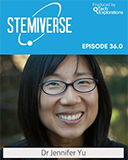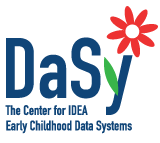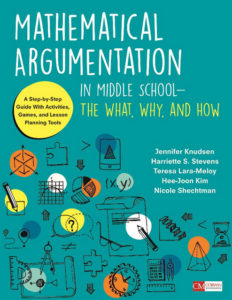
In this issue, we highlight some of SRI’s recent work in disability research and evaluatioknun. It is estimated that more than 1 in 5 students has a diagnosed or undiagnosed learning disability. SRI’s disabilities research discovers feasible, evidence-based solutions to remove barriers so these students can learn and thrive to their full potential. We’re proud to share with you the difference our work makes for children, families, and educators.
Enjoy,
Shari Golan, President, SRI Education
News & notes

Connect with @SRI_Education at #AERA2018
Please check out presentations SRI staff will be making at AERA about STEM & CS education, digital learning, early learning, school & district reform, and supports for students with disabilities and English learners, among other topics! For a list of other upcoming presentations, click here.
Tackling Common Misconceptions About Autism in New Podcast

The team at STEMiverse recently talked with Jennifer Yu, Director of SRI’s Disabilities Research Program, about her work on postsecondary transitions for students with autism. One interesting finding: students with autism pursuing STEM majors are more likely to complete degrees if they start at community college than if they start in 4-year programs. Listen to the podcast.
Disabilities Research and Practice Communities Welcome DaSy Center Response to Article Critiquing U.S. Department of Education’s Early Intervention of Child Outcomes Evaluation

SRI’s DaSY Center blog post responding to this recent article has had nearly 1300 hits since it was posted just over a month ago. The piece begins by clarifying that the child outcome measure (in IDEA, the federal Individuals with Disabilities Education Act) is not a program evaluation, but a performance indicator, and just in a larger system.
SRI’s DaSy Center (Center for IDEA Early Childhood Data Systems) supports state agencies that oversee early intervention and preschool special education programs for children with disabilities, birth to age 5. DaSy facilitates learning communities of states to work on linking data across agencies and programs and on creating a culture of data use.
Targeting Higher-Order Thinking Skills Leads to Better Results in Biology and History for Struggling Teens

SRI researcher Ellen Schiller and Jose Blackorby, of CAST, shared promising results at SREE recently, from an intervention co-designed by researchers, students, and teachers that uses Universal Design for Learning (UDL). The team followed a design-based implementation research process to develop and test curricular units and supports for biology and U.S. history courses. The resulting intervention led to higher achievement on unit tests. A large cluster RCT is now underway to test the efficacy of the approach and better understand how it can help all students.

At AERA: When Students Are Both English Language Learners and Have a Disability
Lynn Newman will present on school engagement of secondary school English Language Learners with disabilities at the Annual Meeting of the American Educational Research Association in New York, on April 14, 12:25-1:55 pm ET, Park Central Hotel, Mezzanine Level, Manhattan B Room.
Meet Authors of New Mathematical Argumentation Book at #NCTM2018

Jennifer Knudsen, Theresa Lara-Meloy, and Hee-Joon Kim teamed up on a new book on middle-school math argumentation. The book offers research-based practical guidance including activities, games, and lesson-planning tools. Meet the authors and hear about other SRI math education work at NCTM, April 25-28.



